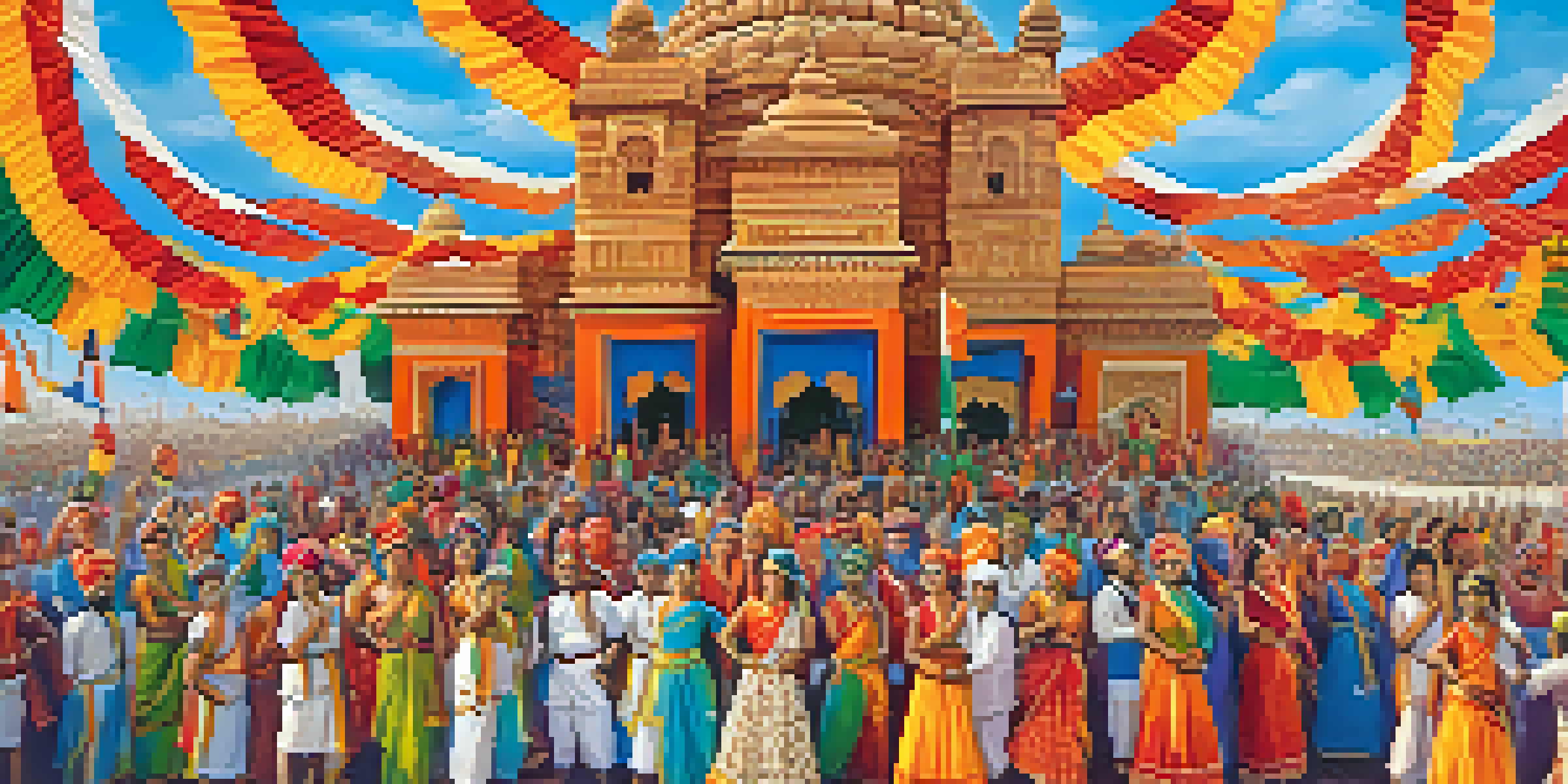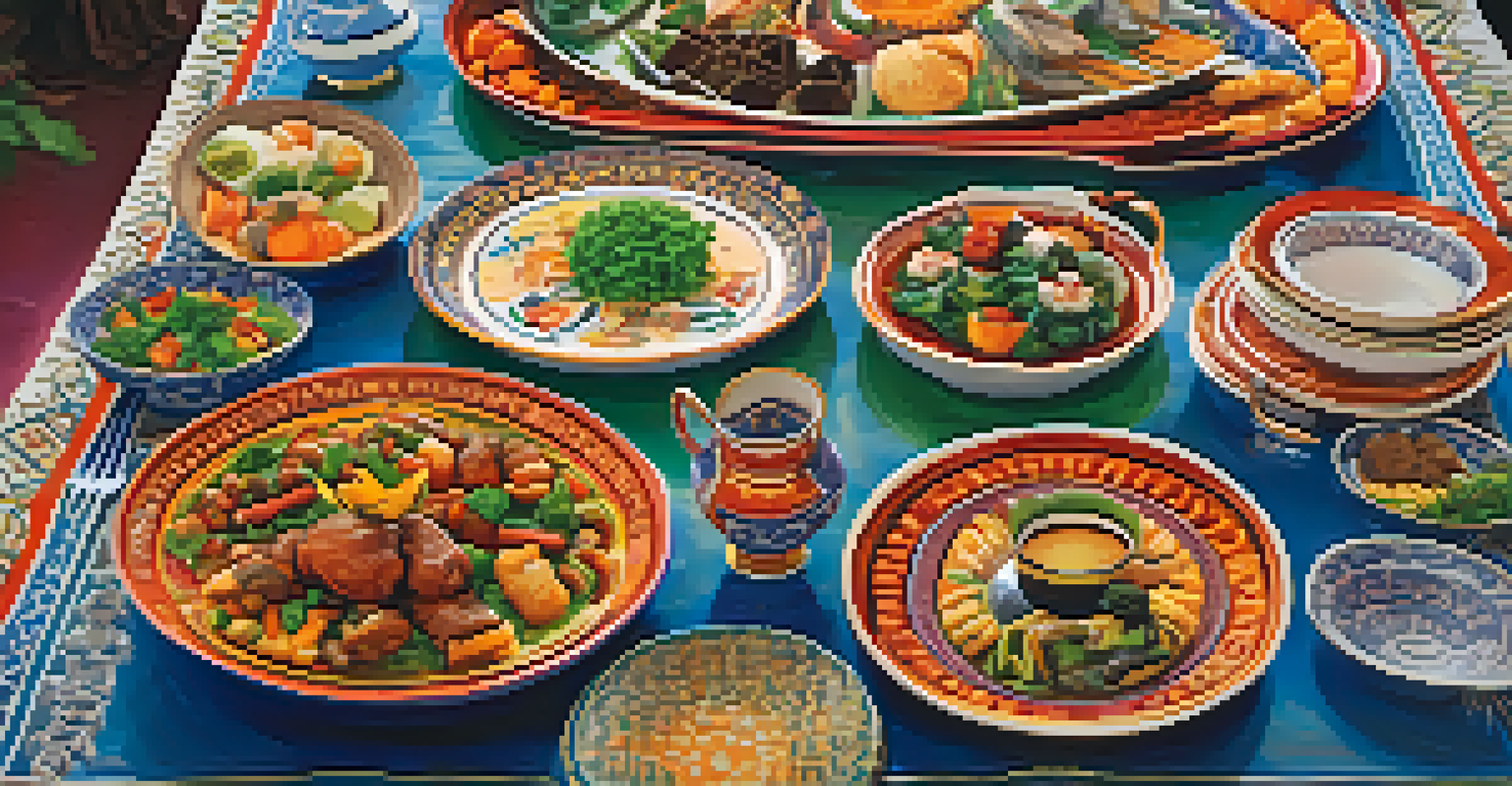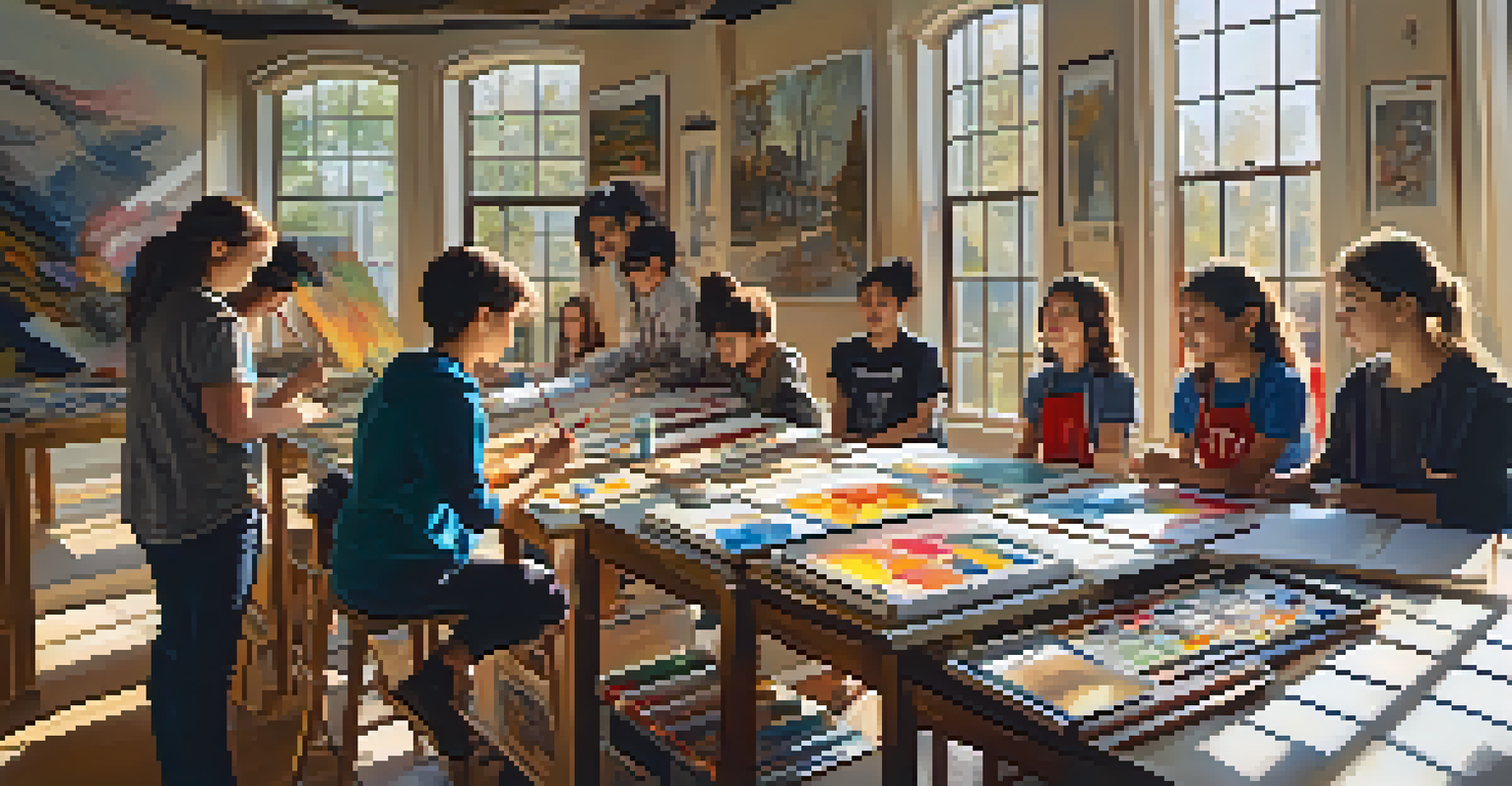Impact of International Cultural Programs on Indian Society

Understanding International Cultural Programs
International cultural programs involve exchanges between countries that aim to promote understanding and appreciation of different cultures. These programs can include art exhibitions, music festivals, and educational initiatives. By inviting artists, scholars, and performers from around the world, these initiatives foster a spirit of collaboration and creativity.
Culture is the widening of the mind and of the spirit.
India has been a participant in various such programs, providing a platform for cultural dialogue. This exchange not only showcases India's rich heritage but also introduces foreign cultures to Indian audiences. As a result, these programs create a tapestry of shared experiences that transcend geographical boundaries.
Through these cultural interactions, participants gain a broader perspective of the world. They learn to appreciate diversity and develop a sense of global citizenship. This cultural empathy is crucial in today’s interconnected world, where understanding each other is more important than ever.
Enhancing Artistic Collaboration and Innovation
One of the most significant impacts of international cultural programs is the fostering of artistic collaboration. When artists from different backgrounds come together, they share techniques, ideas, and inspirations that can lead to innovative creations. For instance, a traditional Indian dancer collaborating with a contemporary choreographer from abroad can result in a unique performance that blends styles.

This kind of collaboration not only enriches the artists involved but also provides audiences with fresh perspectives. They witness performances that challenge conventions and push artistic boundaries. As a result, cultural programs become a breeding ground for new forms of art that can resonate on a global scale.
Cultural Programs Foster Collaboration
International cultural programs encourage artistic collaboration, leading to innovative creations that blend diverse styles.
Moreover, these programs can help in preserving traditional arts by integrating them with modern interpretations. This interplay ensures that heritage is not lost but rather evolves, making it relevant to contemporary audiences while honoring its roots.
Promoting Cultural Awareness and Tolerance
International cultural programs serve as a powerful tool for promoting cultural awareness and tolerance. By exposing individuals to different ways of life, these initiatives break down stereotypes and foster mutual respect. Participants often find common ground, learning that despite differences, they share universal human experiences.
The beauty of the world lies in the diversity of its people.
For example, festivals that celebrate diverse cuisines allow people to experience cultures through food. When individuals taste dishes from other countries, it opens doors to discussions about traditions, histories, and values. This culinary exchange can spark curiosity and encourage further exploration of different cultures.
As societies become more diverse, fostering tolerance becomes essential. Cultural programs provide a framework for dialogue and understanding, helping to create a more inclusive environment. They remind us that embracing diversity enriches our lives and strengthens community bonds.
Influencing Education and Skill Development
International cultural programs significantly influence education and skill development in India. Many initiatives include workshops and training sessions led by international experts. These hands-on experiences allow participants to acquire new skills and knowledge that may not be readily available in their local contexts.
For example, a program featuring a renowned musician conducting a masterclass can inspire budding artists to explore their potential further. Such exposure not only enhances their technical abilities but also boosts their confidence in pursuing their artistic dreams.
Promoting Tolerance Through Exchange
These initiatives promote cultural awareness and tolerance by exposing individuals to different ways of life, fostering respect and understanding.
Furthermore, these educational exchanges often emphasize critical thinking and creativity, essential skills in today’s dynamic job market. By integrating global perspectives into local education systems, cultural programs prepare students to thrive in a multicultural world.
Economic Benefits through Cultural Tourism
Cultural programs can have a substantial economic impact through the promotion of cultural tourism. When international artists and cultural ambassadors visit India, they often attract tourists interested in experiencing these events firsthand. This influx of visitors can lead to increased revenue for local businesses, including hotels, restaurants, and shops.
Moreover, cultural festivals and events create job opportunities in various sectors, from event management to hospitality. Local artisans also benefit as they showcase their crafts to a wider audience, which can boost sales and promote their art forms.
In the long run, enhancing India's cultural tourism can contribute to sustainable economic growth. By positioning India as a vibrant cultural destination, these programs can help preserve heritage while simultaneously driving economic development.
Strengthening Diplomatic Relations
International cultural programs play a critical role in strengthening diplomatic relations between countries. By fostering mutual respect and understanding, these initiatives can pave the way for better political and economic collaborations. Cultural diplomacy emphasizes shared values and common interests, making the path to dialogue smoother.
For instance, when artists from India participate in a global arts festival, they not only represent their culture but also symbolize India’s commitment to global cooperation. Such exchanges can lead to discussions on trade, education, and sustainable development, creating a win-win situation for all parties involved.
Economic Growth via Cultural Tourism
Cultural programs boost economic development by attracting tourists and creating job opportunities in various sectors.
Ultimately, these cultural exchanges contribute to a more peaceful world. They remind us that diplomacy is not just about politics; it’s about connecting on a human level and building relationships that can withstand challenges.
Challenges and Opportunities Ahead
While international cultural programs offer numerous benefits, they also come with challenges. Issues such as cultural appropriation, misrepresentation, and unequal participation can arise. It’s essential to approach these programs with sensitivity and a commitment to ethical practices that respect all cultures involved.
However, these challenges also present opportunities for growth. By addressing concerns collaboratively, countries can create frameworks that promote equitable participation and representation. This proactive approach can lead to more meaningful exchanges that truly celebrate diversity.

Looking ahead, the future of international cultural programs in India is bright. As technology evolves and the world becomes more interconnected, there are endless possibilities for innovative partnerships that can enrich Indian society. Embracing these opportunities will help cultivate a vibrant cultural landscape.